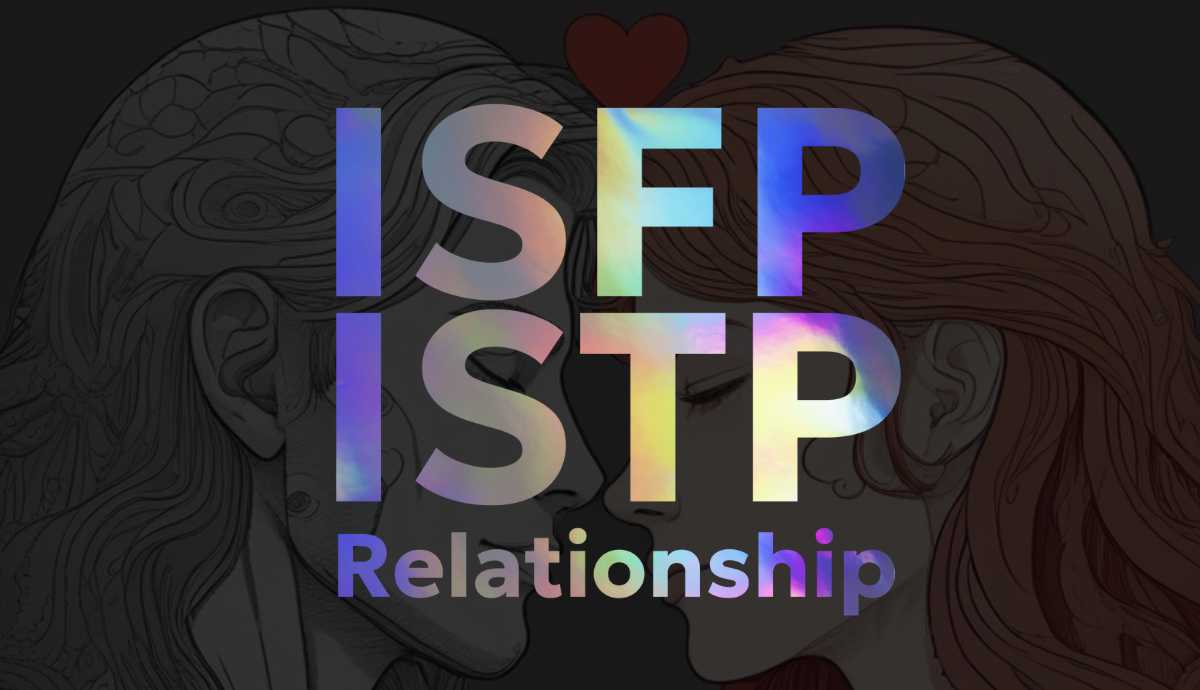Here is a look at the type of moral compass likely to be characteristic of each Myers-Briggs personality.
INFJ
Although they may sometimes feel like aliens who are little understood by the world, INFJs nonetheless are ever-considerate of the impact their actions have on others. They seek to promote trust, fairness and harmonious relations with people. As a result, INFJs do what they believe is right by collective standards. Their moral compass may incline them to often put the wellbeing of others before their own in a self-sacrificing and martyr-like way.
INFP
INFP’s are typically kind individuals whose moral compass likely places greater respect for the experience of each individual. INFP may draw strong moral boundaries around what they deem to be right or wrong based on their personal experience. However, they may lean more towards compassion due to their ability to put themselves in other people’s shoes, and imagine their vantage point. INFPs will hold true to what they believe is right even if no one supports them in doing so.
INTJ
The moral compass of INTJ may often appear as an afterthought to their highly objective-driven personality. The type of morality they do employ may be largely determined by the importance of what they’re trying to accomplish and what they deem as a necessary evil. INTJ therefore may have little reservation about resorting to some deceptive and conniving methods to accomplish their ends if need be. INTJs however exhibit their own sense of integrity and have been known to walk away from stable and financially lucrative careers in favor of pursuing a path that is more meaningful, challenging and liberating.
INTP
INTPs develop their morality around their strong principles which will be based solely on what makes sense to them and not just what they’ve been taught to believe. Logical consistency is an important factor in their moral compass and so things such as hypocrisy and double standards will likely be cardinal sins in the INTP bible. INTPs will not blindly uphold what they cannot find justification for. They are able to couch their morality in logic and provide rational justifications for what and why they believe rather than blind obedience to some decree.
ENFJ
Because ENFJs are optimists who can see potential in all types of people, they are inclined to be merciful and compassionate. ENFJs can sometimes show moral weakness regarding their own personal affairs, but on the public stage, they seek to be the benevolent king or queen for all people. They are reluctant to take a hard stance on anything controversial or polarizing and will often seek to take the position that fosters unity and goodwill.
ENFP
ENFPs can be impish provocateurs but they are also champions of individual liberty and honest expression. Because of this, they are very wired to be understanding of people rather than judgmental. ENFPs can see the positive potential in some of the worst types of people and may feel most of them are redeemable. They want to be accepted and appreciated for who they authentically are and they likewise treat other people with the same open-minded and friendly attitude. Because they are also fiercely loyal to their friends and loved ones, ENFPs may sometimes be very biased in who and what they defend.
ENTJ
ENTJs understand the importance of upholding standards of moral behavior within a society. ENTJs likely have a keen sense of justice and moral wisdom that is tantamount to the wise King Solomon. ENTJs may use metaphor and nifty gnomic expressions to punctuate and communicate their values to others. ENTJs are likely to be actively trying to better themselves and their circumstances and they may be driven to help other people to do the same through positive reinforcement and sharing of knowledge.
ENTP
ENTP’s moral compass is likely to be one that focuses mostly on liberty and freedom. Allowing others to do what they choose without hurting or infringing on other’s ability to do the same. ENTPs are willing to dig into the nuance of issues and question the ethics of everything. They can be very progressive and make ethical arguments that are subversive or run counter to popular opinion. ENTPs can be morally fluid but they also care about being in good standing with society and so they may oscillate between toeing the moral line and challenging it.
ESFJ
The moral compass of the ESFJ is heavily influenced by the values of their group or community. Because they are so externally focused, ESFJs may fail to develop a strong moral code of their own. Theirs is largely based on what is deemed appropriate and acceptable by institutions and social standards. Because of this, ESFJs may be susceptible to blindly following bad behaviors or practices if they find themselves within a group where corrupted values are the norm.
ESTJ
The moral rectitude of the ESTJ is largely informed by the precedents set by history and the learning those lessons so that the mistakes of the past are not repeated. ESTJ promotes personal responsibility and competence. They expect people to adhere to and play by the rules and respect authority and traditional values. Because their public image and reputation is so important to them, ESTJs try to fashion themselves in the image of an upstanding and respectable person who is a pillar of moral authority and justice in their community.
ISFJ
ISFJ may be inclined towards some prejudiced perceptions predicated on whatever they’ve been conditioned to believe. The values they were brought up with in childhood are likely to stick with them throughout their lives and go unquestioned for the most part. ISFJs tend to have conservative values and cling to old-fashioned views. They feel responsible for helping people though and are inclined to be very compassionate, but may have to get over some initial prejudice and trust issues when confronted with anything unfamiliar.
ISTJ
ISTJ’s moral compass can seem very black-and-white and based mostly on objective rules and principles. They do not really get bogged down with the nuance of moral drama but rather boil things down to basic principles like personal responsibility and paying the price for one’s actions. They are very pragmatic but fair, and likely to follow conventional wisdom regarding what is right or wrong. ISTJs may exhibit tunnel vision and fail to consider or appreciate the value of other perspectives.
ESTP
ESTPs care about justice – especially swift justice, but when there is much at stake, they want to make sure they get it right. Oftentimes they can be quick to judge though, because they tend to trust what they immediately see and overlook other possibilities. ESTPs try to be consistent about what they say and do and want to be trusted at their word. They normally have a live and let live attitude but in the heat of confrontation or ambition their competitive instincts may compel them to sometimes be ruthless and savage.
ESFP
ESFPs are full of positive energy and they seek to enjoy their lives and have as much fun as they can. They don’t want to be bogged down with resentment and trivial grudges and so ESFPs are more apt to get over most things quickly so they can focus on what’s important. ESFPs are sensitive but not afraid to stand up for themselves when they are disrespected or insulted. Often they can do this in a humorous way but their emotions can get intense when pushed over the edge. ESFPs try to be grateful for what they have and appreciate people as individuals rather than members of a group.
ISTP
ISTPs try to be consistent between their words and actions and are very practical in their moral philosophy. ISTPs may value a “live and let live” mentality because they want the space and freedom to pursue the life they want to lead and allow others to do the same. They may also exhibit a heroic disposition and a willingness to act quickly to help others on a moment’s notice. They can be resentful of those who’ve wronged them but are unlikely to hold onto trivial grudges preferring instead to move on with their lives without looking back.
ISFP
ISFPs are typically sensitive to the suffering of others and this may weigh heavily into the calculus of their morality. They develop their own personal values rather than strictly adhere to the values they may have been taught to follow, As a result, they may have unconventional views and beliefs about what is good or bad but it will likely be underscored by compassion and a respect for life that is admirable.
related posts:
Want to know your astrology placements? You can generate your astrology chart here with our free birth chart generator tool.
- Secrets About Each MBTI Type
- How Each MBTI Type Processes Emotions
- What Each MBTI Type Seeks In A Soulmate
- The Fatal Flaw of Each MBTI Type In Relationships
- The Hidden Superpower of Each MBTI Type
- 6 Excellent Career Matches For INFJs
- 35 Signs That You have An INTJ Personality
- American Presidents Ranked By Zodiac Sign - January 20, 2025
- ESTP and ESFP in love: 6 Dynamics of Their Relationship - September 4, 2024
- ISFP and ISTP in love: 5 Dynamics of their Relationship. - August 28, 2024








